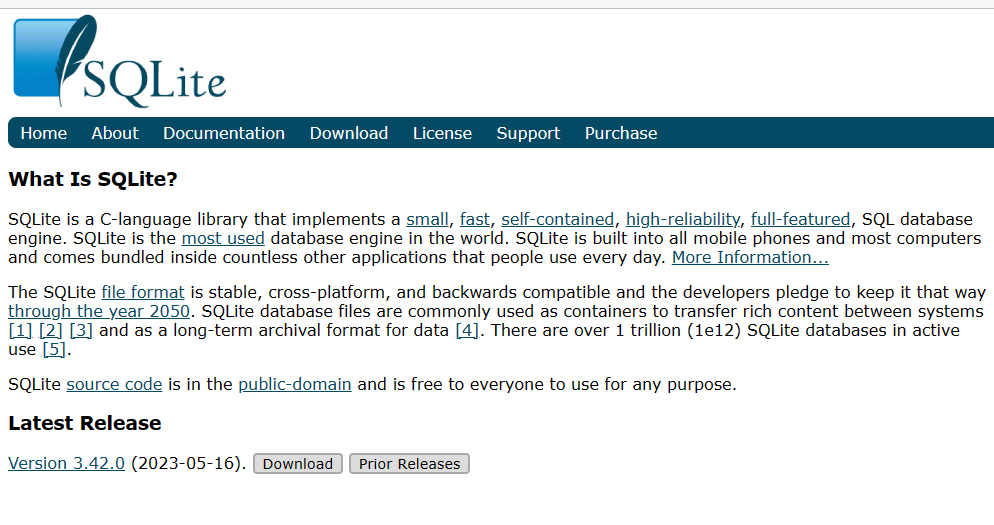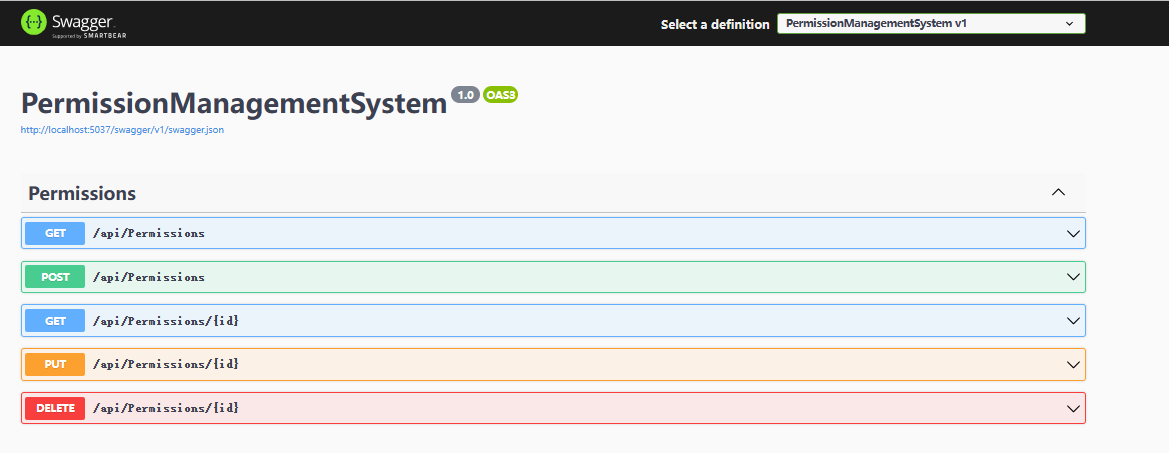
SQLite是一种轻量级的嵌入式数据库引擎,广泛应用于各种开发项目中。System.Data.SQLite库,提供了许多用于操作数据库的功能和API。本文将分模块讲解如何使用SQLite数据库,包括数据库连接、创建表、插入数据、查询数据和更新数据等方面。以及使用Sqltie构建案例实战
SQLite基本用法
1. 引用和连接数据库
首先,在你的项目中引入 System.Data.SQLite 命名空间。然后,创建一个 SQLiteConnection 对象,并使用它连接到 SQLite 数据库。
using System.Data.SQLite;// 创建连接对象SQLiteConnection connection = new SQLiteConnection("Data Source=mydatabase.db;Version=3;");// 打开连接connection.Open();// 关闭连接connection.Close();2. 创建表
在连接数据库后,你可以使用 SQLiteCommand 对象执行 SQL 语句来创建表。
using (SQLiteCommand command = new SQLiteCommand(connection)){ command.CommandText = "CREATE TABLE IF NOT EXISTS Employees (Id INTEGER PRIMARY KEY AUTOINCREMENT, Name TEXT, Age INT);"; command.ExecuteNonQuery();}这里我们使用 CREATE TABLE IF NOT EXISTS 语句来创建名为 "Employees" 的表。该表包含三列:Id、Name 和 Age。注意,AUTOINCREMENT 关键字用于自动递增生成主键值。
3. 插入数据
使用 INSERT INTO 语句,可以向表中插入数据。
using (SQLiteCommand command = new SQLiteCommand(connection)){ command.CommandText = "INSERT INTO Employees (Name, Age) VALUES ('John Doe', 25);"; command.ExecuteNonQuery();}这里我们将名为 "John Doe" 的员工信息插入到 "Employees" 表中。
4. 查询数据
使用 SELECT 语句,可以从表中检索数据。
using (SQLiteCommand command = new SQLiteCommand(connection)){ command.CommandText = "SELECT * FROM Employees;"; using (SQLiteDataReader reader = command.ExecuteReader()) { while (reader.Read()) { int id = reader.GetInt32(0); string name = reader.GetString(1); int age = reader.GetInt32(2); Console.WriteLine($"ID: {id}, Name: {name}, Age: {age}"); } }}这里我们使用 SELECT * 来查询 "Employees" 表中的所有数据,并将结果打印到控制台。
5. 更新和删除数据
使用 UPDATE 和 DELETE 语句,可以更新和删除表中的数据。
// 更新数据using (SQLiteCommand command = new SQLiteCommand(connection)){ command.CommandText = "UPDATE Employees SET Age = 30 WHERE Name = 'John Doe';"; command.ExecuteNonQuery();}// 删除数据using (SQLiteCommand command = new SQLiteCommand(connection)){ command.CommandText = "DELETE FROM Employees WHERE Id = 1;"; command.ExecuteNonQuery();}这里我们使用 UPDATE 语句将名为 "John Doe" 的员工年龄更新为 30,并使用 DELETE 语句删除主键为 1 的员工数据。
SQLite案例实战
以下是一个使用 ASP.NET Core Web API 和 SQLite 数据库构建完整权限管理系统的代码示例:
1. 创建项目
首先,创建一个 ASP.NET Core Web API 项目。
dotnet new webapi -n PermissionManagementSystemcd PermissionManagementSystem2. 添加依赖项
在项目的 .csproj 文件中,添加对
Microsoft.EntityFrameworkCore.Sqlite 和
Microsoft.EntityFrameworkCore.Design 的依赖。
<Project Sdk="Microsoft.NET.Sdk.Web"> <PropertyGroup> <TargetFramework>net7.0</TargetFramework> <Nullable>enable</Nullable> <ImplicitUsings>enable</ImplicitUsings> </PropertyGroup> <ItemGroup> <PackageReference Include="Microsoft.AspNetCore.OpenApi" Version="7.0.5" /> <PackageReference Include="Swashbuckle.AspNetCore" Version="6.4.0" /> </ItemGroup> <ItemGroup> <PackageReference Include="Microsoft.EntityFrameworkCore" Version="5.0.6" /> <PackageReference Include="Microsoft.EntityFrameworkCore.Sqlite" Version="5.0.6" /> <PackageReference Include="Microsoft.EntityFrameworkCore.Design" Version="5.0.6"> <PrivateAssets>all</PrivateAssets> <IncludeAssets>runtime; build; native; contentfiles; analyzers; buildtransitive</IncludeAssets> </PackageReference></ItemGroup></Project>运行以下命令以安装这些依赖项:
dotnet restore3. 创建数据模型
在项目中创建一个名为 Permission 的数据模型类,用于表示权限。
using System.ComponentModel.DataAnnotations;public class Permission{ [Key] public int Id { get; set; } [Required] public string Name { get; set; } // 其他属性... // 导航属性 public ICollection<User> Users { get; set; }}同时,创建一个名为 User 的数据模型类,用于表示用户。
using System.ComponentModel.DataAnnotations;public class User{ [Key] public int Id { get; set; } [Required] public string Username { get; set; } [Required] public string Password { get; set; } // 其他属性... // 导航属性 public ICollection<Permission> Permissions { get; set; }}4. 配置数据库上下文
创建一个名为 AppDbContext 的数据库上下文类,用于与 SQLite 数据库进行交互。
using System;using System.Collections.Generic;using System.Linq;using System.Threading.Tasks;using Microsoft.EntityFrameworkCore;namespace PermissionManagementSystem{ public class AppDbContext : DbContext { public AppDbContext(DbContextOptions<AppDbContext> options) : base(options) { } public DbSet<User> Users { get; set; } public DbSet<Permission> Permissions { get; set; } protected override void OnConfiguring(DbContextOptionsBuilder optionsBuilder) { optionsBuilder.UseSqlite("Data Source=permissions.db"); } }}这里我们使用 SQLite 数据库作为数据存储,并指定数据库文件为 permissions.db。
5. 创建控制器
创建一个名为 PermissionsController 的控制器,用于处理权限相关的 HTTP 请求。
using Microsoft.AspNetCore.Mvc;using System.Collections.Generic;using System.Linq;[ApiController][Route("api/[controller]")]public class PermissionsController : ControllerBase{ private readonly AppDbContext _dbContext; public PermissionsController(AppDbContext dbContext) { _dbContext = dbContext; } [HttpGet] public ActionResult<IEnumerable<Permission>> GetPermissions() { var permissions = _dbContext.Permissions.ToList(); return Ok(permissions); } [HttpPost] public ActionResult<Permission> CreatePermission(Permission permission) { _dbContext.Permissions.Add(permission); _dbContext.SaveChanges(); return CreatedAtAction(nameof(GetPermission), new { id = permission.Id }, permission); } [HttpGet("{id}")] public ActionResult<Permission> GetPermission(int id) { var permission = _dbContext.Permissions.Find(id); if (permission == null) { return NotFound(); } return Ok(permission); } [HttpPut("{id}")] public IActionResult UpdatePermission(int id, Permission permission) { if (id != permission.Id) { return BadRequest(); } _dbContext.Entry(permission).State = EntityState.Modified; _dbContext.SaveChanges(); return NoContent(); } [HttpDelete("{id}")] public IActionResult DeletePermission(int id) { var permission = _dbContext.Permissions.Find(id); if (permission == null) { return NotFound(); } _dbContext.Permissions.Remove(permission); _dbContext.SaveChanges(); return NoContent(); }}这个控制器包含了用于处理权限的 CRUD 操作的相应动作方法。
6. 注册服务和启动应用程序
在 Startup.cs 中注册数据库上下文服务,并启动应用程序。
using Microsoft.AspNetCore.Builder;using Microsoft.AspNetCore.Hosting;using Microsoft.EntityFrameworkCore;using Microsoft.Extensions.Configuration;using Microsoft.Extensions.DependencyInjection;using Microsoft.Extensions.Hosting;namespace PermissionManagementSystem{ public class Startup { private readonly IConfiguration _configuration; public Startup(IConfiguration configuration) { _configuration = configuration; } public void ConfigureServices(IServiceCollection services) { services.AddDbContext<AppDbContext>(options => options.UseSqlite(_configuration.GetConnectionString("DefaultConnection"))); services.AddControllers(); services.AddEndpointsApiExplorer(); services.AddSwaggerGen(); } public void Configure(IApplicationBuilder app, IWebHostEnvironment env) { if (env.IsDevelopment()) { app.UseDeveloperExceptionPage(); } // Configure the HTTP request pipeline. if (env.IsDevelopment()) { app.UseSwagger(); app.UseSwaggerUI(); } app.UseRouting(); app.UseAuthorization(); app.UseEndpoints(endpoints => { endpoints.MapControllers(); }); } }}7. 配置连接字符串
在 appsettings.json 文件中,添加连接字符串配置。
{ "ConnectionStrings": { "DefaultConnection": "Data Source=permissions.db" }, "Logging": { "LogLevel": { "Default": "Information", "Microsoft": "Warning", "Microsoft.Hosting.Lifetime": "Information" } }, "AllowedHosts": "*"}这里我们指定了数据库连接字符串为 Data Source=permissions.db。
8. 运行应用程序
运行以下命令启动应用程序:
dotnet run现在,你可以通过发送 HTTP 请求到 /api/permissions 路由来使用这个权限管理系统。

这是一个简单的示例,展示了如何使用 ASP.NET Core Web API 和 SQLite 数据库构建一个基本的权限管理系统。你可以根据实际需求扩展和优化这些代码,并添加身份验证和授权等功能来完善系统。
 鲁公网安备37020202000738号
鲁公网安备37020202000738号